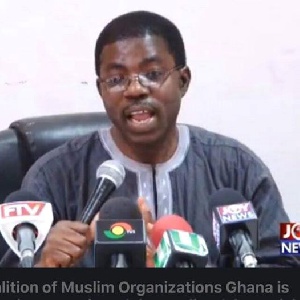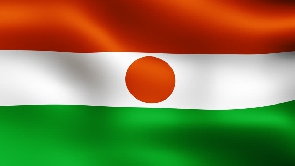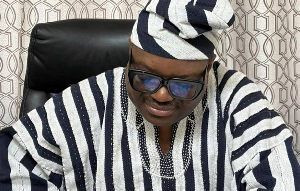Political parties contesting this year's general election have been asked to clearly state measures they will put in place when given the mandate to ensure that there is freedom for Muslims to practice their faith.
Abdel-Mannan Abdel-Rahman, the General Secretary of the Coalition of Muslim Organisation (COMOG), said the height at which Muslims especially women were discriminated against was unbearable hence the need for political parties to come clear on how they would address this issue.
COMOG says though it is enshrined in the 1992 Constitution of the country to allow all the religious sects to practice their faith without any restrictions this has not been the case for Muslims in the country.
Speaking at a media interaction in Accra Abdel-Mannan said the blatant disregard for the freedom of worship and expression of religious beliefs had complicated efforts at convincing some Muslims parents to encourage the education of their wards, especially females, to the highest level, which in effect would have dire consequences on the country.
Although, the President had given directives to allow Muslim women to wear their veil at their place of work, some public training institutions and second cycle institutions still deny them their right to practice the Islamic faith.
He said this, among others such as the Islamic banking and finance and the operations of the Hajj board were some of the problems worrying the Muslims, which needed urgent solutions.
Government as a matter of urgency should adopt the Islamic Finance and Banking to avail itself to the tremendous benefits that it comes with, he stated.
Abdel-Mannan noted that although this was pertinent it would help unleash the economic potential especially to the Muslim community of Ghana as well as enhance the growth of the financial system and the economy at large.
'The incorporation of Islamic Banking and Islamic Finance to complement the existing banking and finance system in Ghana will contribute to reducing the size the unbanked population in the country.
This has made many more Muslims in the private sector not to invest their money or profit from credit facilities to grow their businesses and explore their entrepreneurial competencies because of the lack of religious compliant options'.
The introduction of an interest-free Islamic Banking and Financing would provide a massive boost to the investment and entrepreneurial drive of thousands of Ghanaian Muslims and non-Muslims as well as to propel the growth of the economy for job creation.
The General Secretary said if government and political parties consider this initiative, it would also allow for foreign investment as well as open Ghanaian financial institutions to collaboration and cooperation with Shariah-compliants institutions in all part of the world.
He said in as much as government was doing all within its reach to create an acceptable environment for all they should do something to ensure the smooth operations of the Hajj board.
Abdel-Mannan said the secularisation of Hajj operations which was a sacred activity would only compound the problems faced by Muslims in this regard.
He thus, appealed to government and other political parties to clarify their intentions to Ghanaians especially Muslims on the measures they would undertake to address these concerns when given the mandate.
'We want to know how these political parties will effectively implement this constitutional rights and ensure these forms of discrimination meted out to Muslims becomes a thing of the past.'
General News of Sunday, 13 November 2016
Source: GNA













